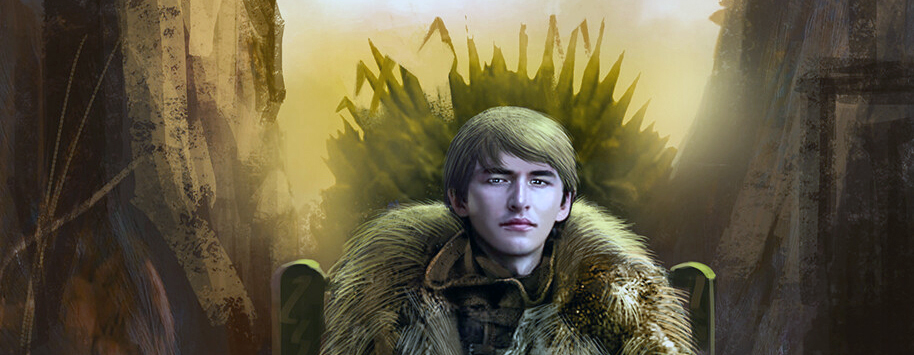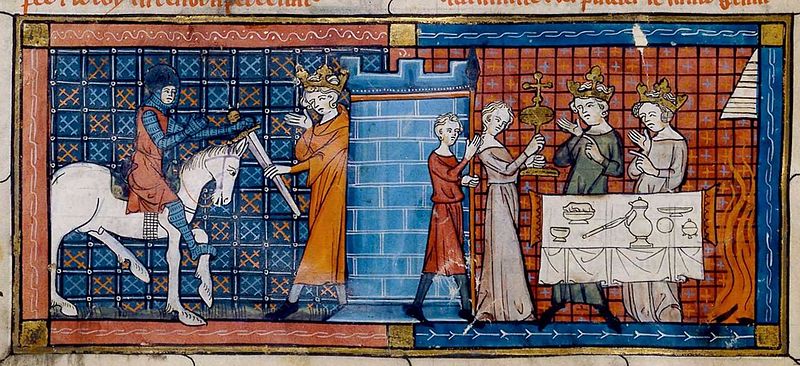For the other 42 entries about the TV series that I have posted since 2013 click: here. Very few visitors have understood how I use the Bran symbol. In a nutshell, whoever sees the past knows that the lies of Christianity and World War II are a lethal cocktail for the Aryan mind (here). The fact that not even most white advocates can see it is due to psychological resistance, as Vig wisely said a year ago (here).
In May of last year Game of Thrones fans saw the grand finale. But since fans have been steeped in idiotic culture for decades, almost none understood the author’s message. By author I don’t mean the Jews who filmed the HBO interpretation of A Song of Ice and Fire but the writer George R.R. Martin: whose ideas about the grand finale, to the fury of the toxic fandom, at least the directors respected.
Originally I also failed to understand the message. But as we saw on this site a year ago when I added several posts about the finale, Martin is a sort of Plato follower in the sense that A Song of Ice and Fire tries to answer the question, ‘How can mortal men be perfect kings?’
The answer is evident in Bran Stark’s story arc, ‘Bran the Broken’. As one of the very few Martin fans guessed years before the finale, to become the philosopher-king you must not be completely human but have godly and immortal things, such as the weirwood fused into your being. This is the only type of monarchy Martin gives legitimacy: the kind where the king suffers on his journey and is almost dehumanised for the sake of his people, as in the Arthurian legend the Fisher King (French: Roi pêcheur, Welsh: Brenin Pysgotwr), also known as the Wounded King or Maimed King (Roi blessé, in Old French Roi Méhaigié, Welsh: Brenin Clwyfedig), was the last in a long line charged with keeping the Grail. Richard Wagner also played with this idea in my favourite of his operas, Parsifal.
Perceval arrives at the Grail Castle to be greeted by the Fisher King in
an illustration for a 1330 manuscript of Perceval, the Story of the Grail.
If you watch YouTube videos of reactions to the Game of Thrones finale, you will find that some fans were enthusiastic when Sam proposed democracy as the ideal form of government, but were disappointed when Sam was publicly derided by Westeros’ lords.
Democracy was not what the author had in mind, but something closer to Plato that the Neanderthal white fans who mix with blacks and muds never understood. Greg Johnson once said that IQ is dropping in America precisely because of the proliferation of inferior races and miscegenation. But the sad thing is that not even Johnson and his group understood Martin’s profound message.


4 replies on “Game of Thrones’ finale revisited”
My favoruite scene of Parsifal is when Gurnemanz anoints him with water from the Holy Spring, recognising him as the pure fool, now enlightened by compassion, and as the new King of the Knights of the Grail:
https://youtu.be/L4p2ObQvxlk
You should really read _The Golden Bough_. There’s a tremendous amount in there that you would find echoing and expanding on various themes you’ve touched on.
I will (once again) recommend the 1994 Oxford Classics edition (editor Robert Fraser, author James George Frazer).
About the GOT show, the producers were at fault for not giving Bran more powerful parts in the last few seasons.
P.S. Looking at that link with the GOT fans reactions….they look like the sorts that were crying after Hillary got beaten by Trump…..
Completely true. As I said in this article for example, the directors removed a pivotal scene—only thanks to Bran did Littlefinger’s nefarious plots came to light—and made Bran’s sisters smarter than these assholes actually were: bitches who were going to kill each other had it not been for the retrocognitive vision of their disabled brother.